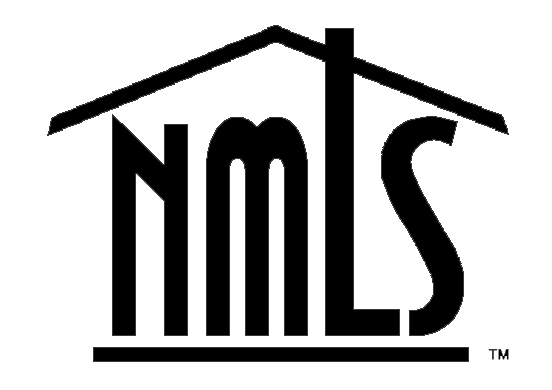Lending With You In Mind
We all want to build toward a better future and invest in smart, measured ways to create long-term security for our lives. Prosperity means something different to everyone, but providing well for those around you for generations to come likely means a lot to you. And it means a lot to us. Whether you are looking for your first home, hoping to pull equity from your current house, or seeking financial strategies for retirement, we offer expert advice for how to effectively use your mortgage as a tool.
The Path toward Pre-Approval
The Sharpe Mortgage Team wants you to make the best choice for your future, and we consider it a privilege to work closely with you to make your home goals fit together with your overall financial goals.
We can help you discern how much you can afford and, once you have applied and been approved, issue you a pre-approval.
In a competitive market, having a solid pre-approval letter to go with your offer may make a big difference as well as speed up your loan process.
Application Checklist
Paystubs
This should be your most recent one-month paystub.
W-2
This should be the most recent full two-year period of W-2s.
Financial Statements
Your most recent full three-month period of financial statements.
Form 4506-T or 4506T-EZ
We will provide you with the form needed for this step.
Contract
You will need the purchase contract signed by you and the seller.
Resident History
Residence history for at least two years.
Credit Scores
A credit score is a three-digit number that determines your creditworthiness and measures how likely you are to repay a loan on time. Your credit score is based upon your history of repaying debt and factors heavily into the lender's decision on whether you are responsible about paying your bills on time. The higher your credit score is, the better the chances are that you will be approved for a loan.
There are five major elements that make up your credit score: payment history, amounts owed, length of credit history, new credit, and types of credit used.

Mortgage Rates
What are mortgage rates?
Mortgage interest rate is the rate of interest charged on a home mortgage loan.
Why do they fluctuate?
Factors that determine your interest rate include credit score and home price, both of which are among the most significant influencers. Other factors are down payment, loan type, and loan terms.
Fixed Rate
A fixed-rate mortgage locks in a set rate of interest that remains unchanged throughout the life of the loan.
Adjustable Rate
An adjustable rate mortgage (ARM) is a mortgage whose rate of interest is periodically adjusted to reflect the current market conditions.
Mortgage Payments
There are four factors that play a role in the calculation of a mortgage payment: principal, interest, taxes, and insurance (PITI). Monthly mortgage payments can vary substantially due to the size and term of your home loan. A member of Ashley's team would love to work with you to help determine a mortgage payment that best fits your needs.
How It Works
1. Pre-Qualification
A pre-qualification letter is a document from us stating that the lender is willing to lend to you, up to a certain loan amount.
2. Income verification
We will verify items such as your income, tax returns, and bank account statements.
3. Appraisal
Once you make an offer on a home, we will request an appraisal of the property to assess whether the amount you offered to pay is in line with the home's condition and comparable homes in the neighborhood.
4. Title search and title insurance
A lender doesn't want to lend money for a home that has legal claims on it, so a title company will perform a title search to make sure the property can be transferred.
5. Underwriting decision
Once one of our mortgage underwriters has reviewed your application, they will determine if you are approved for a mortgage. That approval gives you the all-clear to proceed to closing on the property!
6. Loan in Progress
Our team works with you and your agent to provide excellent communication and transparency throughout the loan process.
7. Paperwork
We explain all the paperwork you will sign.
8. Congratulations!
You receive the keys to your new home.
Home Appriasal
A home appraisal is a determination of a home’s true value requested by the lender to verify that the money asked for by the borrower is an appropriate amount. Due to bias, the lender cannot request a specific home appraiser, so one is assigned from a pool of appraisers.
Many factors are considered when determining the home’s appraised value. Through many processes, such as home walk-throughs, property walks, and additional reviews, the home appraiser will assess the property's size, condition of the exterior and interior of the home, as well as improvements and upgrades that have been made to the original structure.

Closing Costs
Closing costs are fees paid as part of a real estate transaction. Because a home purchase is a contract between a seller and a buyer, and the property changes hands, various costs and several people are involved.
Most homebuying scenarios involve four categories of closing costs that can sometimes be negotiated for the seller to pay.
Lender Costs
With any home loan, costs are incurred to pay the processor, underwriter, and closer and are often passed to the seller.
Legal Fees
Attorney’s fees, title search fees, title insurance, and recording fees are costs that may fall into the legal fees category.
Third-Party Expenses
Credit reports, property appraisals, and inspection fees are paid to a third-party vendor for performing these services.
Pre-Paid Expenses
Interim interest, insurance, and property taxes are ongoing costs that may be paid in advance, upfront at closing.
Closing Process







